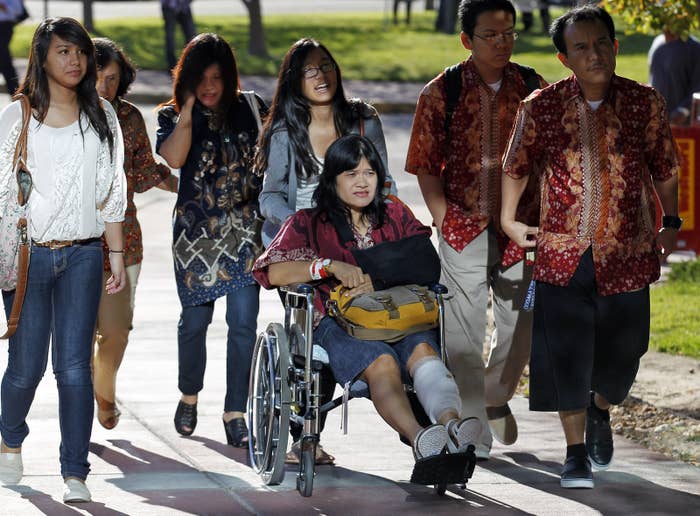
Jurors in the trial of Aurora, Colorado, theater shooter James Holmes will move to the final phase deliberations on whether he should receive the death penalty or life in prison after finding his background and mental health issues did not outweigh the malicious intent of his crimes.
The verdict in the second phase of Holmes’ sentencing was read Monday to a courtroom filled with his victims, media, and his parents. The third — and final — phase of the trial will begin Tuesday and will include statements from the victims in the 2012 shooting massacre.
The same jury found Holmes guilty on July 16 of fatally shooting 12 people and attempting to murder 70 others. Defense attorneys had argued he was in the midst of a psychotic break at the time, the result of schizophrenia, and the disease was the cause of his actions.
“The mere senselessness of it shows it’s psychotic,” defense attorney Tamara Brady said. “There was no political statement or religious statement or statement of any kind of be made at that theater.”
District Attorney George Brauchler, however, questioned that mental illness had impaired Holmes, who remained functional in his daily life as he planned the shooting.
“Is mental illness going to be a shield here to protect someone who we see had the ability to make a million decisions?” he asked the jury.
Over the last week, Holmes’ defense attorneys called former neighbors, teachers, and his family to the stand in a push to sway the jury against death. Home movies and family photos showed Holmes as a happy child in a loving environment. His parents and sister each told the jury they still loved him, and always would.
Brady asked the jury to consider who Holmes was before he had become consumed by a mental illness that “struck like cancer.”
“This is up to you as an individual to make a moral determination to what value you assign to this mentally ill man’s life,” she said.
Brauchler, in contrast, asked the jury about the value of the victims’ lives.

He showed photographs of the 12 who had died as they looked in life and also in death. The screen flipped quickly through those who had been injured — there were too many to go more slowly, Brauchler said.
“How many tears from family members and teachers can outweigh this?” Brauchler asked.
His argument was briefly interrupted by a woman in the courtroom gallery, who jumped across rows of seats and screamed "Do not kill him!" before being dragged outside. In a parallel to Holmes' trial, Brady asked the woman receive mental health treatment, and prosecutor Rich Orman called for her to be held in contempt. Judge Carlos Samour later sentenced her to three weeks in jail after weighing her circumstances, at which point she began screaming again.
After recapturing the jury's attention, Brauchler described Holmes' motivation with quoted statements about his “longstanding hatred of mankind” and “obsession to kill.”
“He knew what he was doing was wrong,” Brauchler said. “He weighed his options. He made his choices and his decisions, and now you just weigh and make yours.”

“Twelve dead from the community,” Brauchler continued. “Can anything outweigh that?”
The jury's verdict provided an answer: No.
